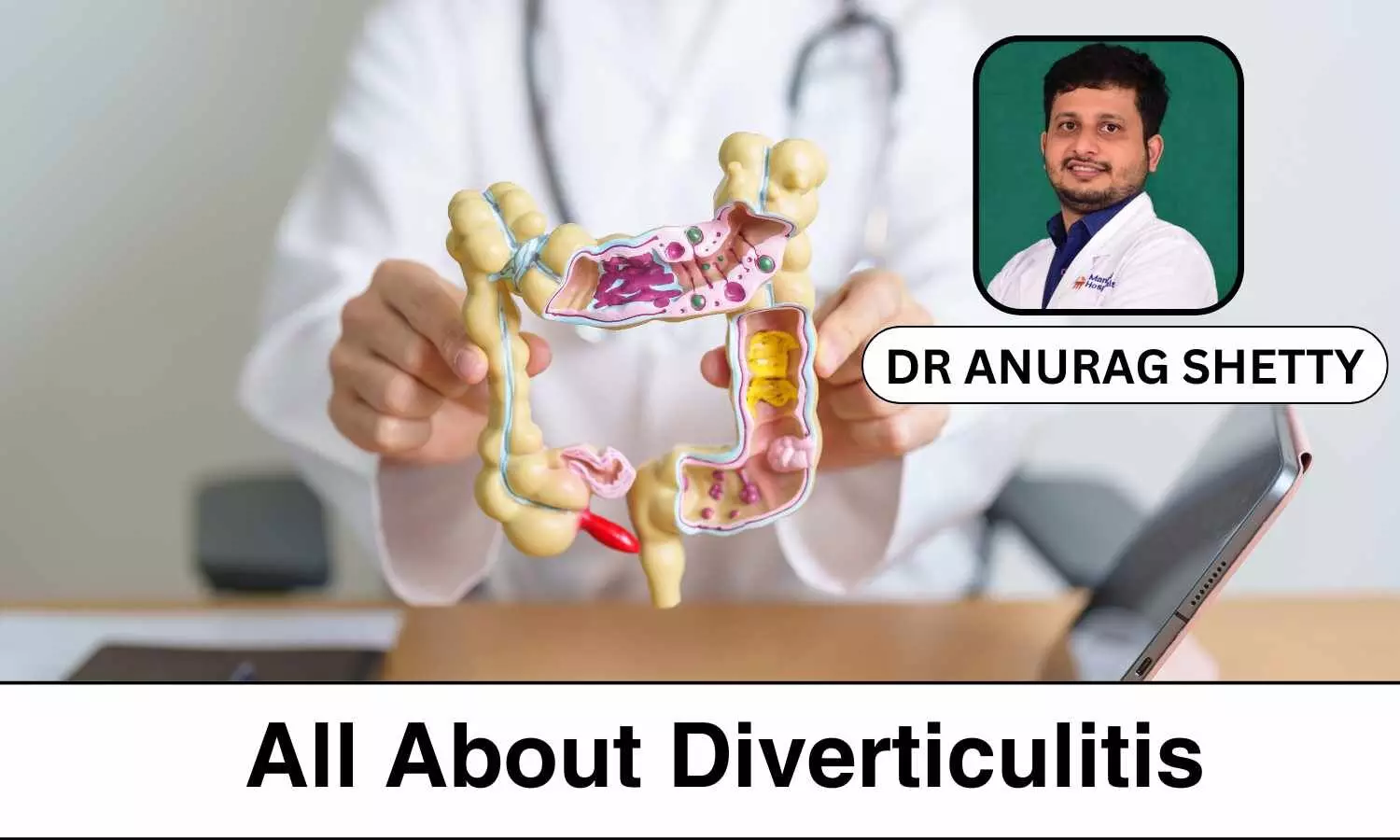Understanding Diverticulitis: Risk Factors, Symptoms, Diagnosis, Treatment, Management - Dr Anurag Shetty

Diverticulosis is a condition characterized by the formation of abnormal outpouchings, known as diverticula, from the bowel wall. These outpouchings result from irregular contractions of the intestine, commonly associated with chronic constipation. When these diverticula become infected or inflamed, the condition progresses to diverticulitis. This complication can lead to severe abdominal pain and other significant symptoms.
The prevalence of diverticulosis increases with age, with the highest incidence observed in individuals over 60 years old. Statistics indicate that approximately 6% of people with diverticulosis will develop diverticulitis, a condition that can lead to serious health issues if not properly managed.
Risk Factors for Diverticulitis
Several factors contribute to the development of diverticulitis, including diet, physical activity, obesity, smoking, alcohol consumption, and certain medications.
Diet: A diet rich in red meat and the typical Western dietary pattern increases the risk of diverticulitis. Conversely, a diet high in fibre, such as one that includes plenty of fruits, vegetables, and whole grains, significantly reduces this risk. Despite previous beliefs, recent studies have not found a link between the consumption of nuts, corn, and popcorn and the development of diverticulitis.
Physical Activity: Sedentary lifestyles are associated with a higher risk of diverticulitis. Regular vigorous physical activity has been shown to lower this risk.
Obesity: Individuals with a body mass index (BMI) greater than 30 are at an increased risk for diverticulitis. The excess body weight places additional strain on the digestive tract, potentially leading to the formation and inflammation of diverticula.
Smoking and Alcohol: Heavy use of alcohol and smoking are known to elevate the risk of developing diverticulitis. Both habits can contribute to inflammation and other digestive issues that may exacerbate the condition.
Medications: Certain medications, including nonsteroidal anti-inflammatory drugs (NSAIDs), aspirin, hormonal therapy, and immunosuppressant, have been linked to an increased risk of diverticulitis. These medications can affect the integrity of the bowel wall or alter immune responses, making the intestine more susceptible to inflammation and infection.
Symptoms and Diagnosis of Diverticulitis
Diverticulitis typically presents with several distinct symptoms, including abdominal pain, nausea, fever, and changes in bowel habits. These symptoms necessitate medical evaluation to confirm the diagnosis and determine the severity of the condition.
Diagnostic procedures for diverticulitis often include imaging studies, such as sonograms and CT scans, which help visualize the inflamed or infected diverticula. Blood tests are also conducted to assess the level of inflammation. After the acute episode of diverticulitis subsides, a colonoscopy is usually recommended to rule out any underlying malignancies or complications arising from the condition.
Treatment and Management of Diverticulitis
Uncomplicated cases of diverticulitis can typically be managed on an outpatient basis. Treatment usually involves antibiotics to combat infection, analgesics to manage pain, and bowel rest to allow the digestive tract to heal. Patients are advised to follow a specific dietary regimen during recovery to minimize strain on the intestines.
However, about 15% of patients with diverticulitis may develop complications that require more intensive care. These complications might necessitate hospitalization for intravenous antibiotics, minimally invasive interventions, or even surgery in severe cases.
Conclusion
Understanding diverticulosis and diverticulitis is crucial for effective management and prevention. Recognizing the risk factors and adopting a healthy lifestyle, including a high-fibre diet and regular physical activity, can significantly reduce the risk of these conditions. Early diagnosis and appropriate treatment are essential to manage symptoms and prevent complications, ensuring better outcomes for those affected by diverticulitis.


